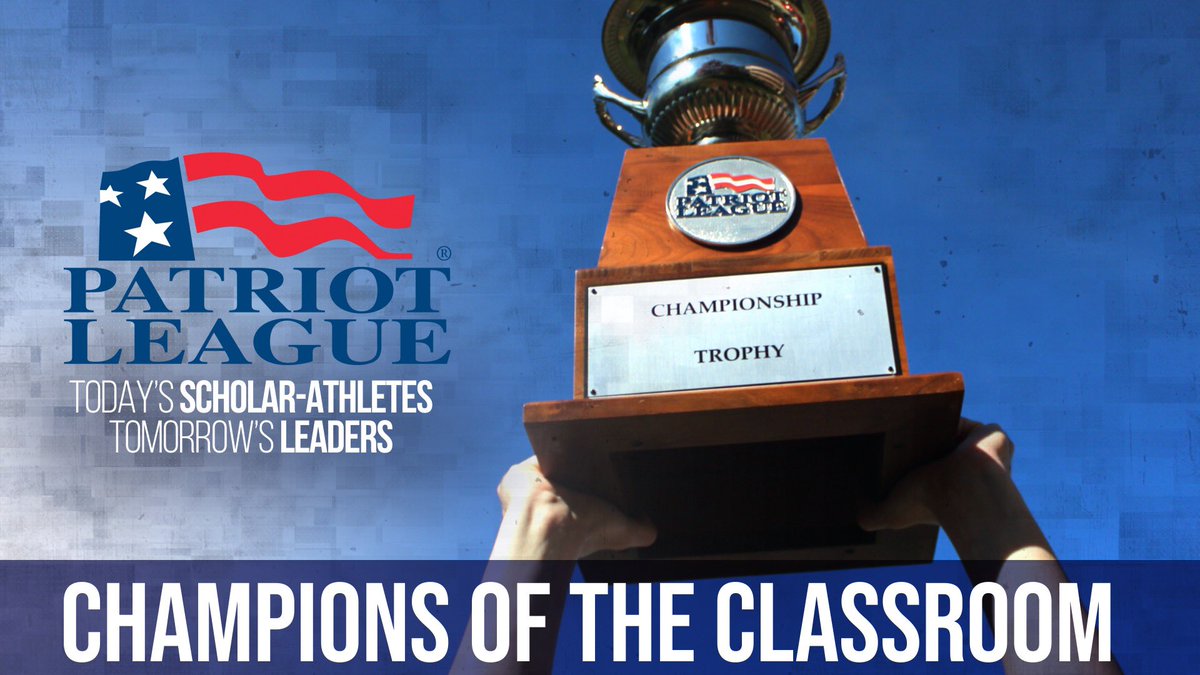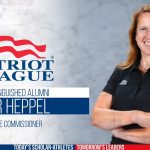Patriot League Executive Director Jennifer Heppel: “This is how we envision to be the best way to do it at this moment in time”
The Patriot League in 1985 was founded on a set of operational principles that have guided the evolution of the athletic conference for the last 35 years.
The founders of the league set the principles of admitting athletes who are academically representative of their class. Once decided, those principles then informed the conference’s laws on competition.
Remembering this is helpful when thinking about the Patriot League announcement by the school presidents’ on the parameters for resuming athletic competitions in the fall.
Now that there is a set of principles, individual schools now can come up with plans on how they can conduct a fall season based on those high-level parameters.
“It’s good to have the guidance under which we can start to work to operationalize some of these issues,” Patriot League Executive Director Jennifer Heppel told me. “I will say I have gotten great feedback nationally from folks – and not just folks and friends and being nice to me, but people seem to appreciate the Patriot League stepping forward and saying if it’s going to happen, this is how we envision to be the best way to do it at this moment in time.”
The challenges of reopening fall sports is still very considerable, to put it mildly, but the Patriot League president’s statement seemed to move the conversation forward as to what fall sports might realistically look like.

Students Reporting To School At Same Time As Athletes
Five principles were mentioned in the Patriot League’s short release:
- Student-athletes will return to campus at the same time as other students;
- Patriot League competition will begin at the end of September, with the expectation that League play will be completed prior to Thanksgiving;
- Non-League competition will not begin prior to Friday, Sept. 4;
- Patriot League member institutions will confirm that non-League competitors are following comparable health and safety protocols in advance of any contest; and,
- No Patriot League teams will fly to competitions and, with rare exceptions, regular-season competition will exclude overnight travel.
Jen Heppel told me that the decision by individual schools to reopen campusses, or with plans to do so, played a part in their decision.
“Not all of them announced, but they’re all in that kind of one to two week window or formalizing those announcements,” she said. “And so from a timing perspective, it really made a lot of sense for a issuance or guidance around athletics to occur within the context of those broader institutional announcements as most our campuses are, for the most part, shut down right now.”
The Patriot League has a wide variety of schools in terms of geography. American University is in the middle of the District of Columbia, for example, while Colgate’s campus is in a small rural town in central New York. Though the particulars on reopening campuses are different, some thoughts unite all schools.
“Everybody wants to get back to campus,” she continued. “Even though we don’t know the nuts and bolts details right now, we are absolutely focused on reopening are are universities and our campuses. But we need to be thoughtful and we need to get the protocols right. The answer is within context of the entire university.”
Heppel said that a phased-in approach seemed likely for readmitting students.
“You’re not just just going to open the doors on a Sunday and say welcome back to six thousand students and start classes on Monday that week,” she said. “That’s not so how institutions start to reopen and populate their campuses and how they’re going to teach. That’s all being operationalized right now. And athletics is just one component of that.”
The decisions on delayed openings and phased openings are being driven more by the needs of the overall student body, which stands in contrast to other conferences where it sometimes seems like athletes are intended to operate under different rules. That’s one thing that makes the Patriot League’s situation so fascinating – their priorities are different.
” I would say the presidents, the athletics directors and if you really ask any of the coaches, they would say that the single most important components are the health and safety of our communities and the reopening of our universities,” she said. “And we have to make sure that our universities are able to reopen successfully and play a positive role in making sure that happens.”

Flights
One of the guiding principles that has gotten a lot of attention is “no Patriot League teams will fly to competitions,” something that has deep scheduling implications across all sports.
“We’re not chartering you know, we do commercial air and there just aren’t there’s from the health and safety perspective,” Heppel explained. “Continuing to try to mitigate dangerous exposures is is important. So that’s that’s a reasonable parameter. It’s based on what we know right now about best practices and best practices. Commercial flying is not something that the presidents were felt was a necessity.”
If the Patriot League had all chartered flights to all their athletic competitions it might have been different, but the presidents of the Patriot League were basing their decisions on the safety of commercial flights, which is very different.
“We’re talking infection control strategies that social distancing is a part of,” she said. “Best practices control strategy at this moment in time. And for league play, we do have an advantage. We actually can drive all of our campuses.”
That is very much not the case for out of conference games, however. For example, in football Fordham, who is an associate member, plays Hawai’i. Though she didn’t say the game was cancelled explicitly, Heppel did say that it would be Fordham’s decision on how to handle rescheduling.
“It will take some creativity,” she said. “We’ve got a lot of really smart people involved. So I have I am optimistic that we will be able to come up with some schedules that really do provide for great training and experience. And then we’ll have our championships.”
Despite the uncertainly about scheduling, Heppel was optimistic.
“There’s so much uncertainty and it can’t be it can be hard to figure out, you know, to make decisions and then to say, oh, goodness,” she said. “But if we make that decision, then what about this? At the end of the day, you just really need to start somewhere. And we felt like at this point in time, we do have enough information to for the president to announce the level of guidance. And then it will we’ll take the next step as administrators now will start to develop the plans to operationalize and work with the presidents on those.
“It’s such a tough environment because I think everybody, whether you work in athletics or anywhere else, we just so want to get back to life. One of the ways that we we keep going each day is with that level of hope and optimism. So I think it’s it’s natural to be optimistic and hopeful, but it’s we’re getting closer and closer. So it is best now as we close in on how to execute this to be realistic.”
Heppel told me that meeting are ongoing as to how the schools and the league will be doing scheduling and competition. More details should follow during the course of the summer. “That’s what we talk about every day – we meet about it every week,” she said.

Chuck has been writing about Lehigh football since the dawn of the internet, or perhaps it only seems like it. He’s executive editor of the College Sports Journal and has also written a book, The Rivalry: How Two Schools Started the Most Played College Football Series.
Reach him at: this email or click below:
